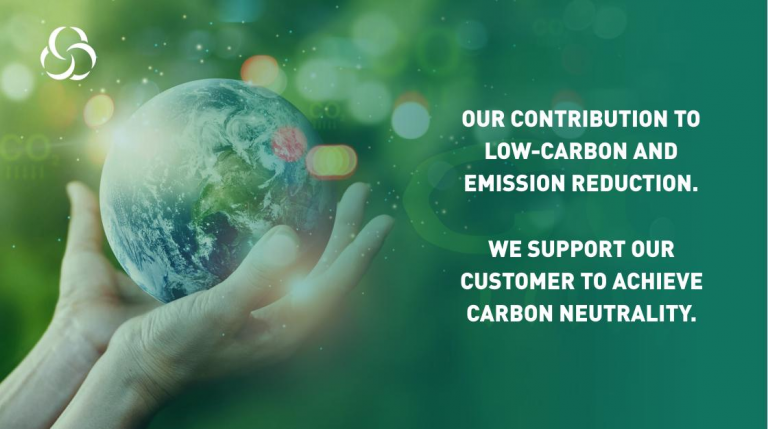1.Introduction
In today’s world, sustainability is no longer a choice but a necessity. Global companies face increasing pressure to reduce their carbon footprint and adopt more environmentally friendly practices. SYS GROUP aligns its sustainability efforts with the SBTi targets (Science-Based Targets initiative), a globally recognized framework designed to reduce greenhouse gas emissions based on climate science.
2.What is the SBTi Target?
The Science-Based Targets initiative (SBTi) was jointly launched in 2015 by the Carbon Disclosure Project (CDP), the World Resources Institute (WRI), the World Wide Fund for Nature (WWF), and the United Nations Global Compact (UNGC). It aims to help companies set emissions reduction targets based on climate science and drive ambitious climate action in the private sector.
- Define “science-based targets” and promote best practices for emissions reduction and net-zero goals based on climate science
- Provide companies with methodologies and tools to set emissions reduction targets aligned with the latest climate science
- Assemble a team of experts to provide independent assessment and validation of companies’ emissions reduction targets
How can science-based targets be achieved?
① Government: Formulate policies and regulations to encourage companies to adopt low-carbon development pathways.
② Companies: Improve carbon management, enhance energy efficiency, and adopt clean energy.
③ Investors: Focus on companies’ carbon emissions performance and support low-carbon businesses through investment.
④ Public: Raise environmental awareness, engage in low-carbon lifestyles, and collectively address climate change.
3.SYS GROUP’s Path to Sustainability
In brief, the Science-Based Targets initiative (SBTi) is an international multilateral NGO that provides companies with the scientific basis and framework standards to reduce greenhouse gas emissions. It ensures that companies’ emissions reduction targets align with the Paris Agreement’s goal of limiting global temperature rise to well below 2°C above pre-industrial levels and pursuing efforts to limit it to 1.5°C. SBTi promotes the global corporate goal of halving emissions by 2030 and achieving net-zero by 2050.
4.SYS GROUP’s emissions reduction targets:
- Scope 1 & 2 reduction targets: Reduce total emissions by 42% by 2030, using 2022 as the baseline year.
- Scope 3 reduction targets: Reduce emissions intensity (tCO2e per 10,000 yuan of profit) from Scope 3 categories 1 & 10 by 51.6% by 2030, using 2022 as the baseline year.
- Annual reduction plan: On average, aim to reduce emissions by around 8% per year, adjusting according to the company’s actual situation.
- Key Steps in SYS GROUP’s Carbon Reduction Strategy
Improve Energy Efficiency:
- Increase energy efficiency through energy-saving measures, equipment upgrades, and energy management
- Recycle steam in factories to lower energy consumption per unit for optimal efficiency
Develop Renewable Energy: - Actively develop photovoltaic power generation equipment
- Gradually increase the use of green electricity and allocate annual green energy costs effectively
Green Energy Substitution: - Promote green commuting, green office practices, and energy-saving measures
- Replace diesel-powered forklifts with electric-powered ones and use tractors instead of forklifts to reduce diesel consumption
- Gradually replace fuel-powered company vehicles with new energy vehicles
Outsourced Services: - Conduct carbon emissions assessments for core suppliers and encourage them to adopt carbon reduction measures, develop green electricity, and reduce emissions, or choose to collaborate with low-carbon suppliers
- Plan raw material procurement wisely to avoid waste
- Increase the utilization rate of in-house weaving factories
- Implement energy-saving and emission-reduction measures at Southeast Asian factories, improving the utilization rate of electricity and diesel to reduce energy consumption per unit
Operational Quality Improvement: - Control production costs, improve operational quality, increase product added value, and explore new markets and customers to boost profit margins
- Enhance the company’s image and market competitiveness
5.Benefits of SBTi Targets for Companies
Enhancing Corporate Image: Demonstrate environmental responsibility and social commitment
Business Innovation and Market Expansion: Drive low-carbon technology innovation, business model transformation, and access to global mainstream markets to achieve sustainable development
Economic Benefits: Reduce costs through energy savings and emissions reduction, enhancing competitiveness
Risk Management: Mitigate future climate policy changes and market risks
Looking ahead, SYS GROUP will continue to pursue SBTi sustainability targets. By fostering collaboration with clients and partners, the company aims to promote sustainability throughout the supply chain. This includes continued investment in renewable energy, optimizing production lines, and sharing best practices in environmental responsibility.



